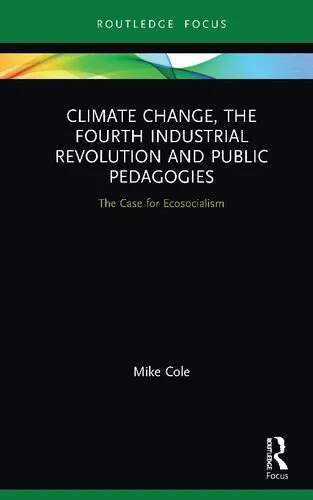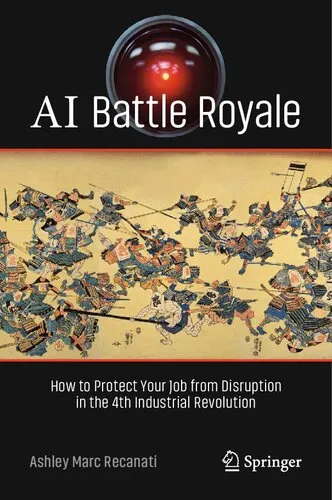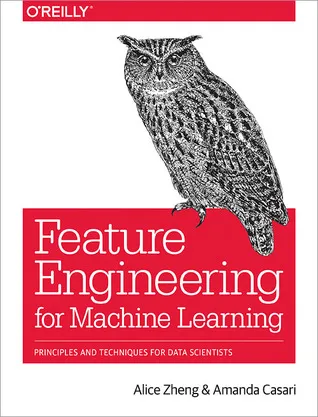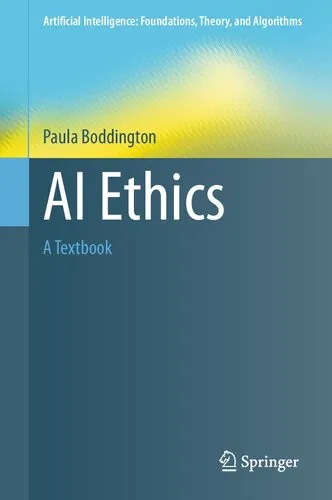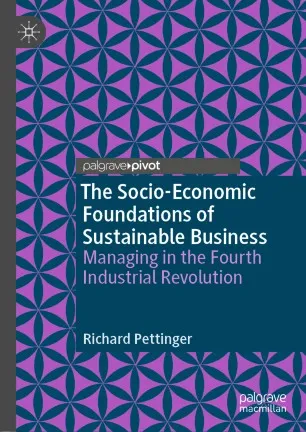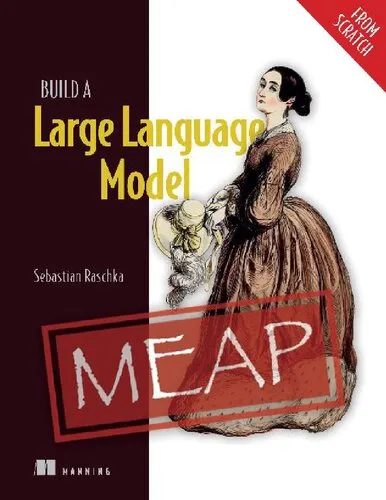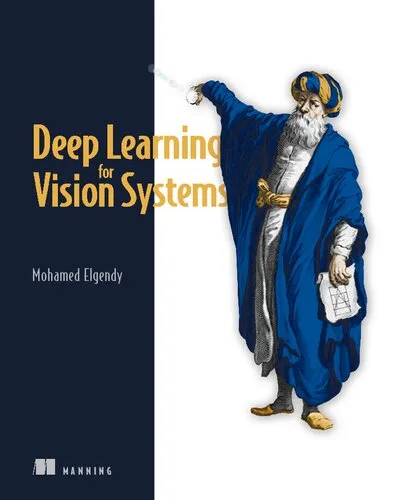Climate change, the fourth industrial revolution and public pedagogies : the case for ecosocialism
4.3
Reviews from our users

You Can Ask your questions from this book's AI after Login
Each download or ask from book AI costs 2 points. To earn more free points, please visit the Points Guide Page and complete some valuable actions.Related Refrences:
Introduction
Welcome to "Climate change, the fourth industrial revolution and public pedagogies: the case for ecosocialism," a transformative exploration aimed at unraveling one of the most profound challenges of our time—climate change—and examining it through the lens of the Fourth Industrial Revolution and its implications for public pedagogies. This book is an urgent call to action and a comprehensive guide for understanding how the intersection of technology, education, and economic systems can be reimagined to foster a more sustainable and equitable future. Through this introduction, readers will gain insights into the book's core themes, key takeaways, notable quotes, and its significance in today's global discourse.
Detailed Summary of the Book
The book is built on the premise that climate change is not merely an environmental or scientific issue but a socio-economic and political one. It postulates that the Fourth Industrial Revolution, characterized by rapid advancements in AI, robotics, and biotechnology, accentuates the need for transformative change in our societal structures. At its core, the book advocates for ecosocialism, a political philosophy that merges ecological sustainability with socialist principles, to combat the unsustainable practices driven by neoliberal capitalism.
The work begins by analyzing the existential threat posed by climate change, emphasizing the role industrial activities and economic systems have played in exacerbating this crisis. It provides a historical account of industrial revolutions, highlighting how each has shaped society and emphasizing that the current technological revolution offers unprecedented opportunities—and threats—for the global community.
A significant portion of the book is dedicated to public pedagogies—educational practices and strategies that extend beyond traditional classroom settings—and their potential to foster critical consciousness and active ecological citizenship. By engaging with culture, media, and technology, public pedagogies can play a vital role in reshaping perceptions and driving societal change towards ecosocialism.
Key Takeaways
- The Fourth Industrial Revolution provides both tools and challenges that must be navigated to address climate change effectively.
- A shift towards ecosocialism is essential to create an equitable and sustainable world.
- Public pedagogies are crucial in educating and mobilizing individuals towards active ecological and social participation.
- Interdisciplinary approaches combining technology, education, and policy are necessary for effective climate action.
Famous Quotes from the Book
"In facing the unprecedented challenge of climate change, we must embrace an unprecedented synthesis of technology, education, and egalitarian principles."
"Ecosocialism is not just a political alternative; it is an existential necessity for the preservation of both humanity and our planet."
"Public pedagogies have the potential to awaken ecological consciousness and inspire transformative action at societal levels."
Why This Book Matters
This book is significant because it addresses the urgent necessity to rethink our current trajectory at a time when the stakes could not be higher. While discussions on climate change often become mired in technical details or political gridlock, this book cuts through by providing a holistic framework that incorporates technological innovation, educational strategies, and economic reform. It matters because it dares to envision a world where sustainability and equity are not just aspirational ideals but attainable futures.
Through a bold synthesis of ideas, "Climate change, the fourth industrial revolution and public pedagogies: the case for ecosocialism" offers a roadmap for academics, policymakers, educators, and activists alike to engage with one of the most pressing issues of our time. By crafting a compelling narrative that bridges the gap between ecological urgency and socio-economic opportunity, this book serves as both a call to awareness and a catalyst for action.
Free Direct Download
You Can Download this book after Login
Accessing books through legal platforms and public libraries not only supports the rights of authors and publishers but also contributes to the sustainability of reading culture. Before downloading, please take a moment to consider these options.
Find this book on other platforms:
WorldCat helps you find books in libraries worldwide.
See ratings, reviews, and discussions on Goodreads.
Find and buy rare or used books on AbeBooks.
